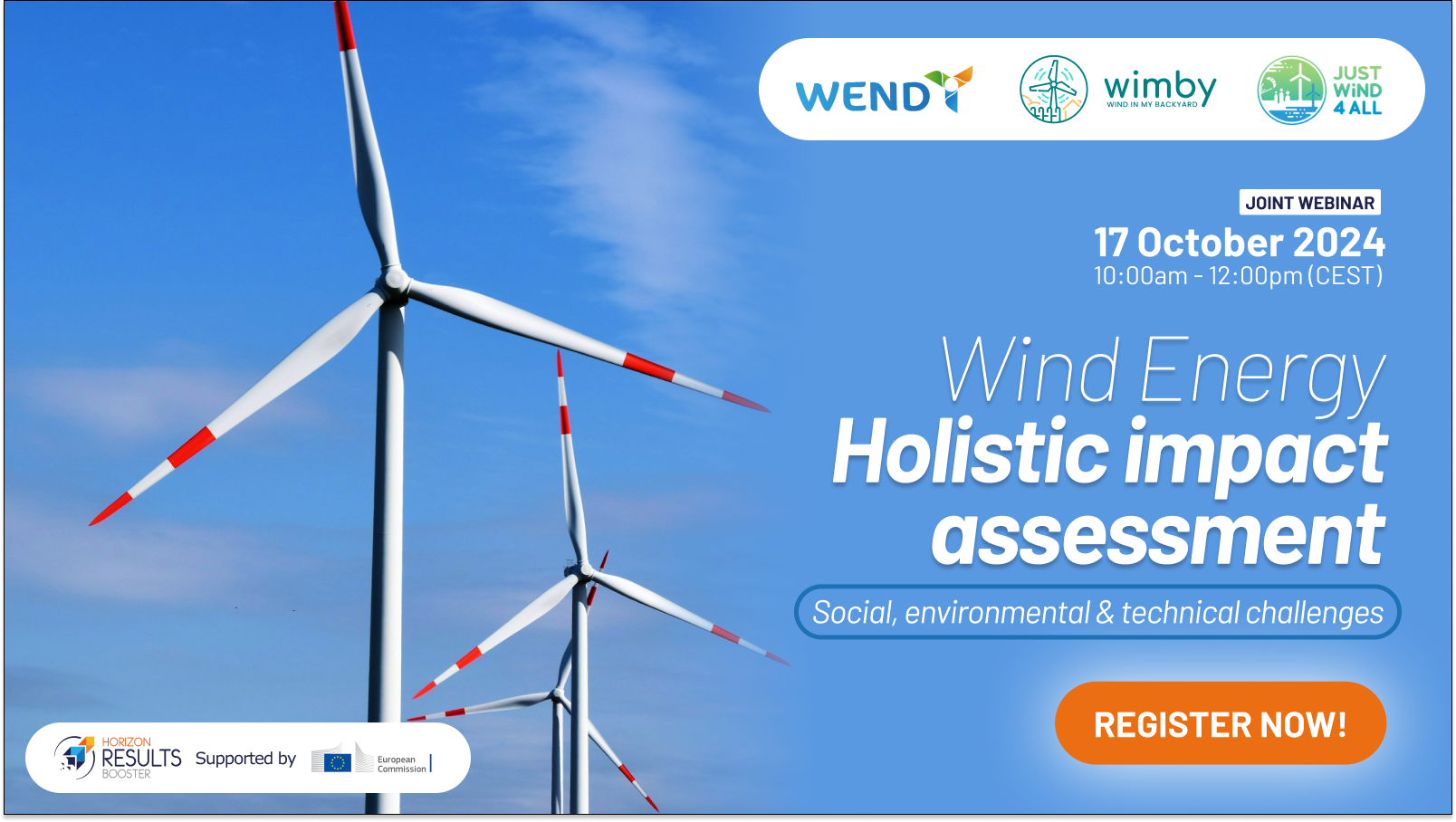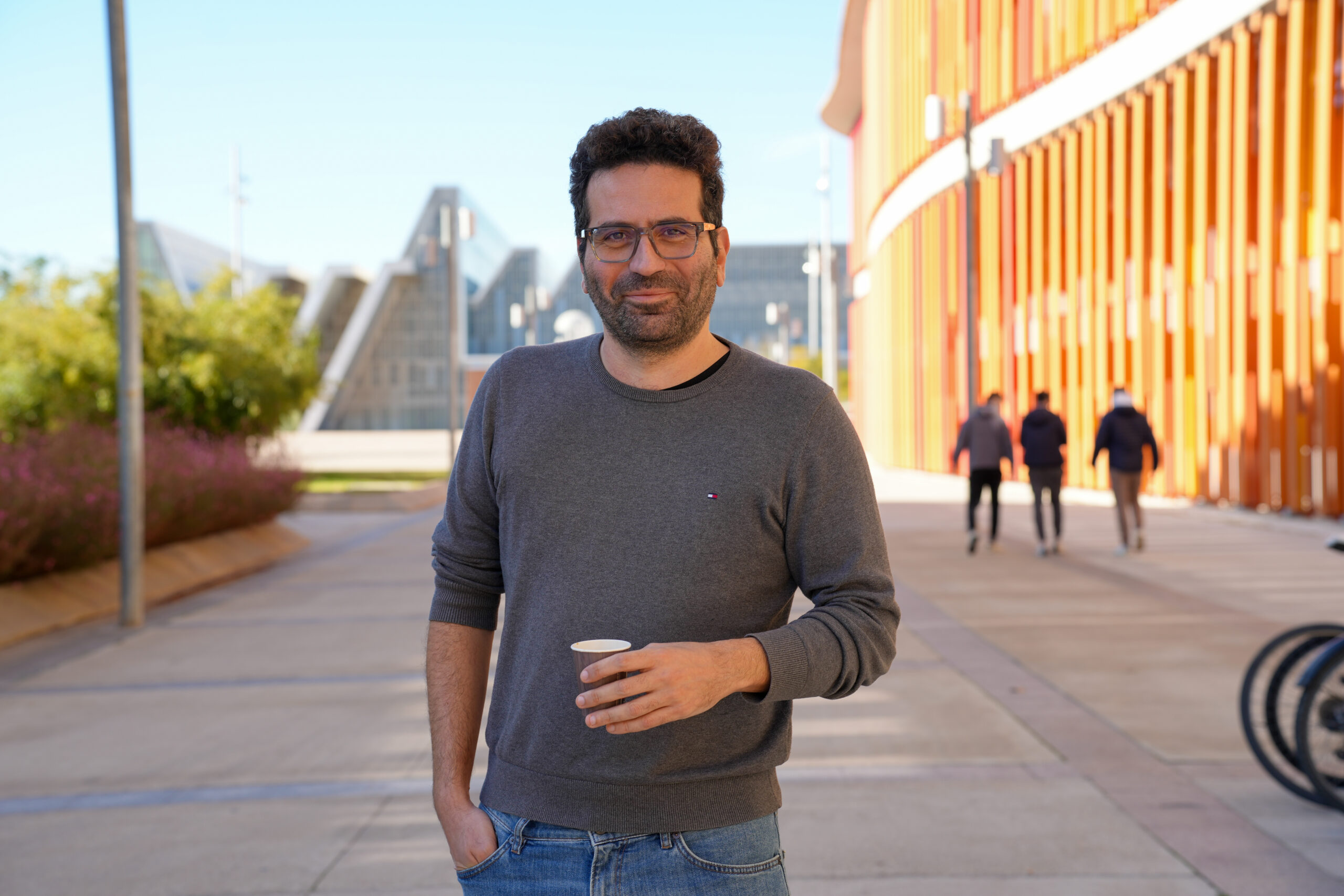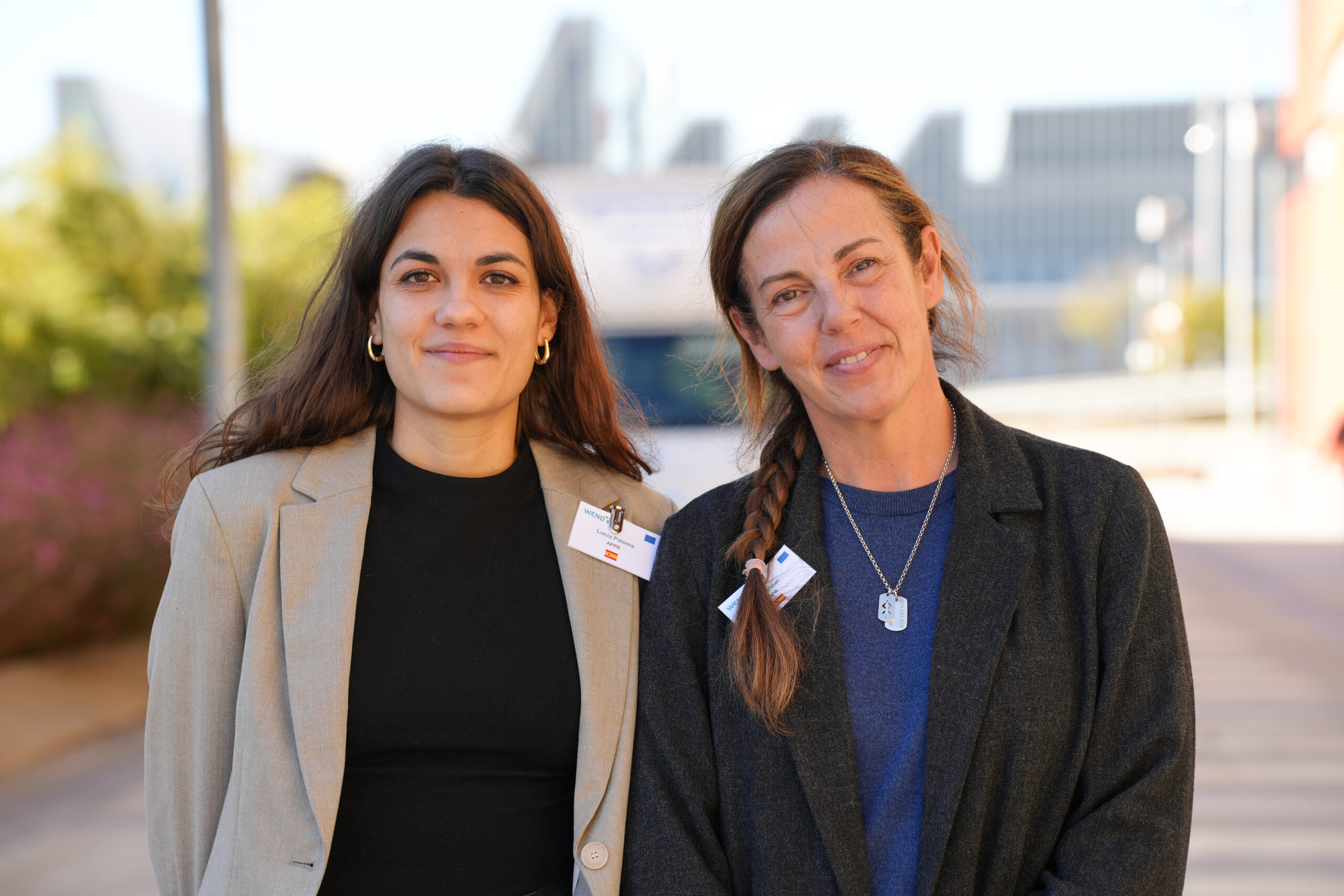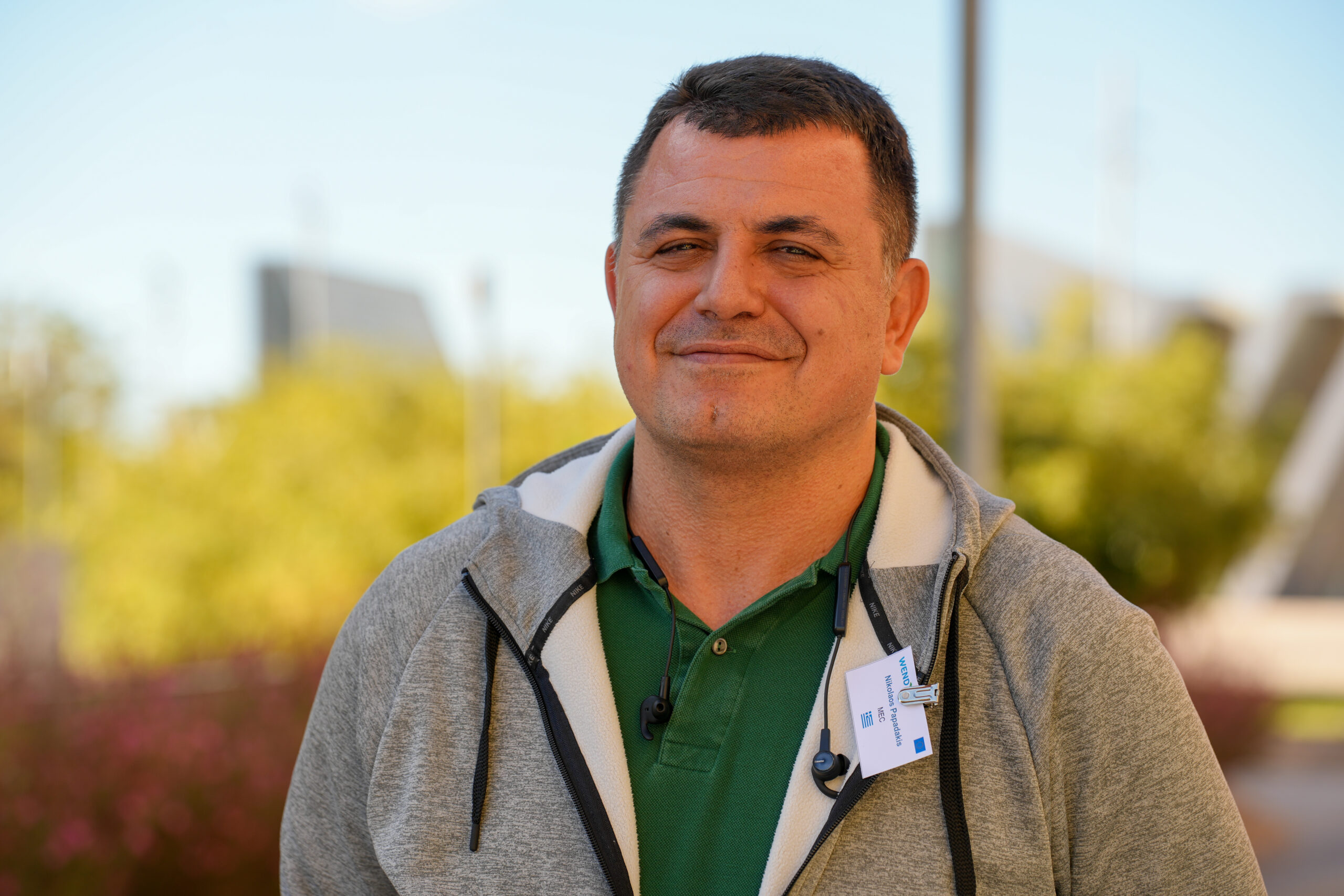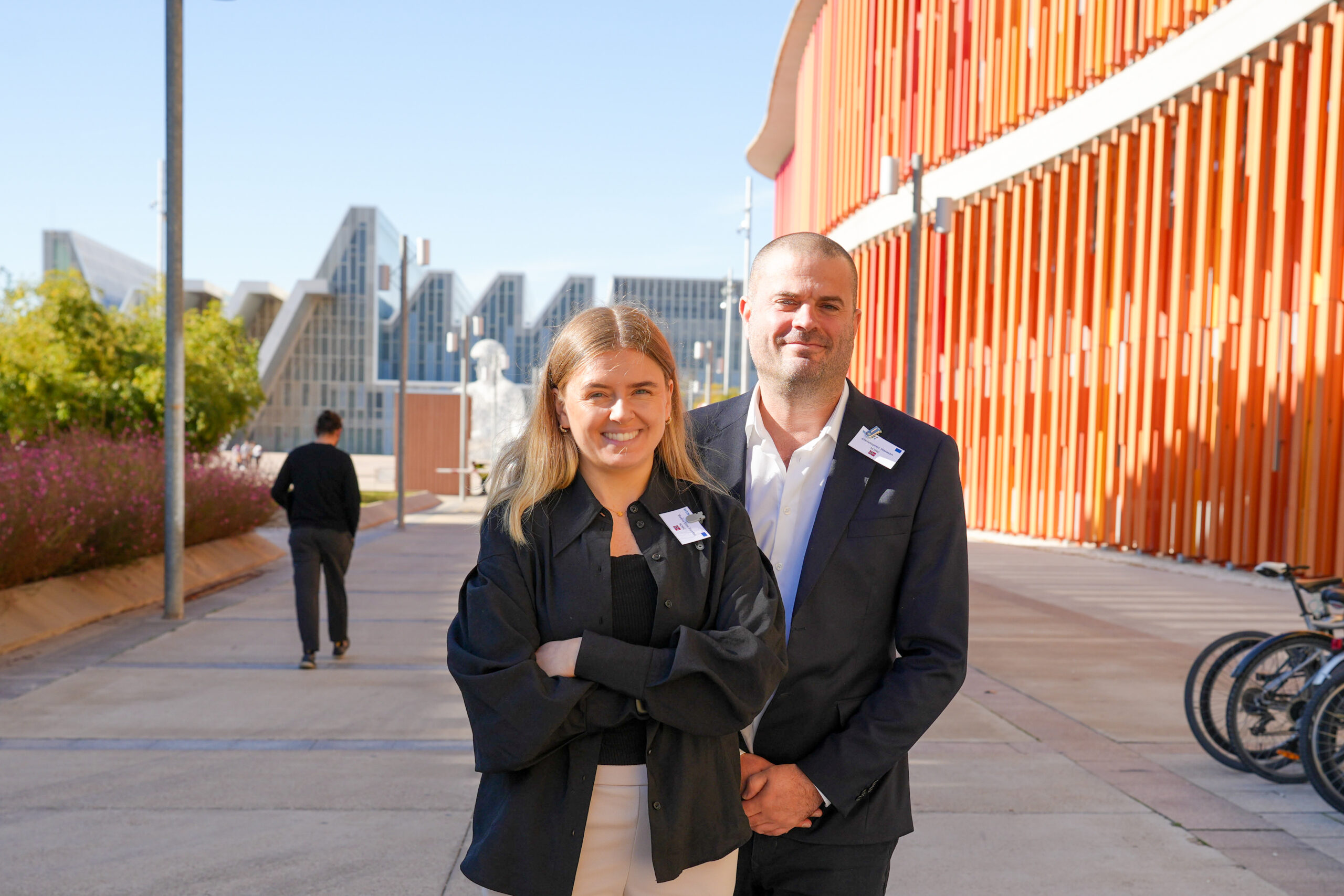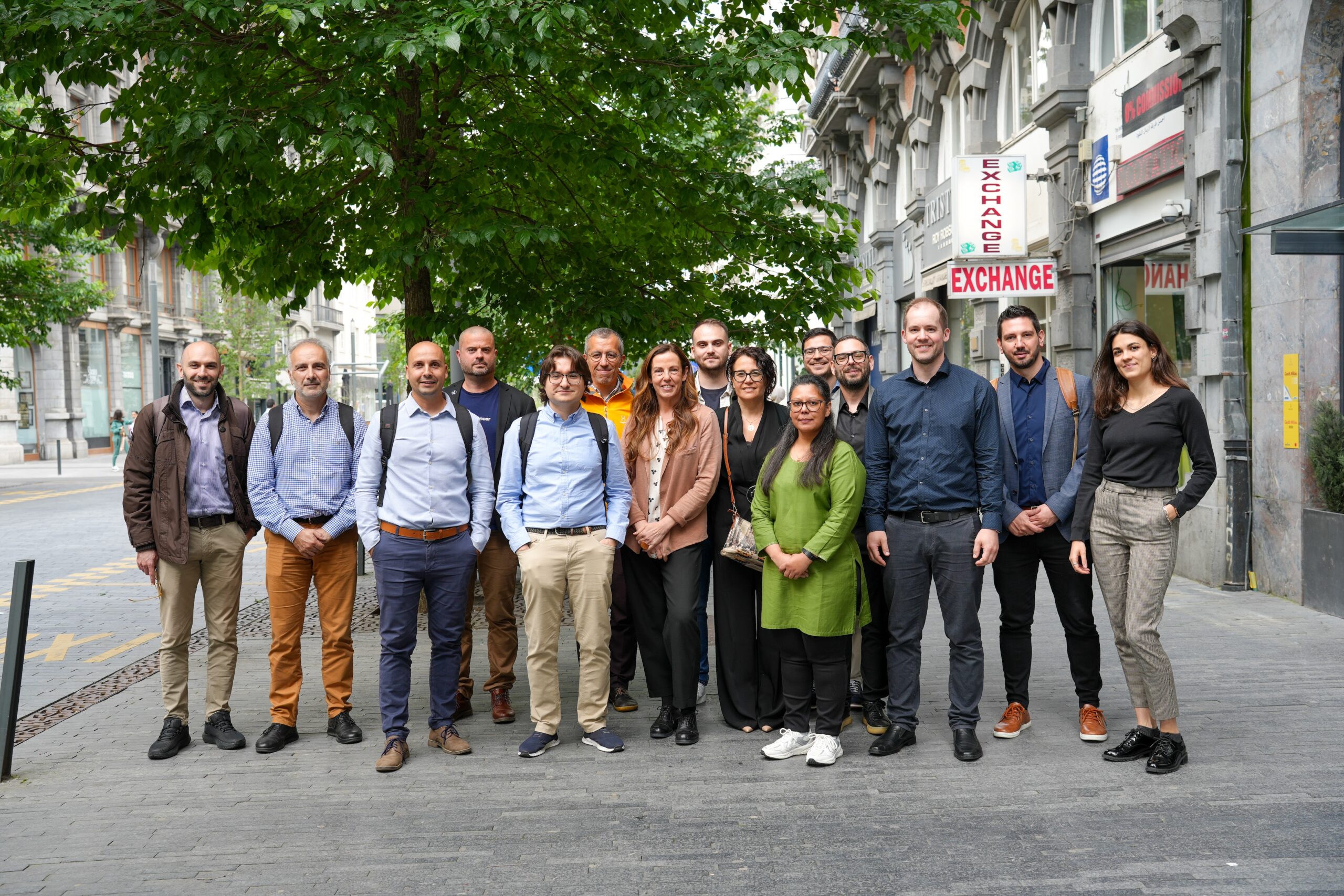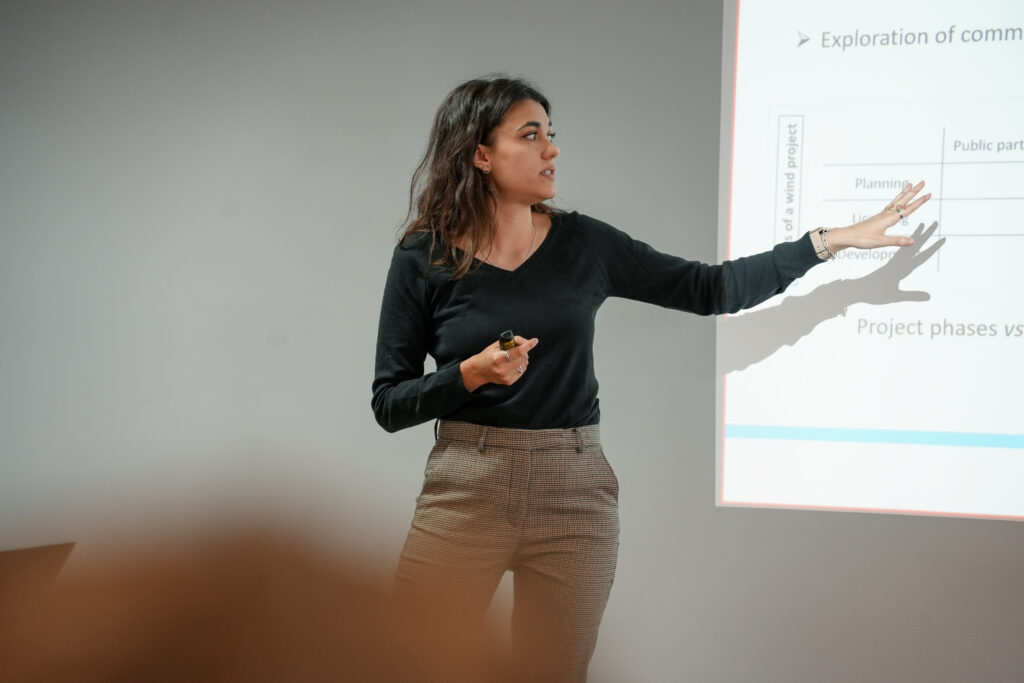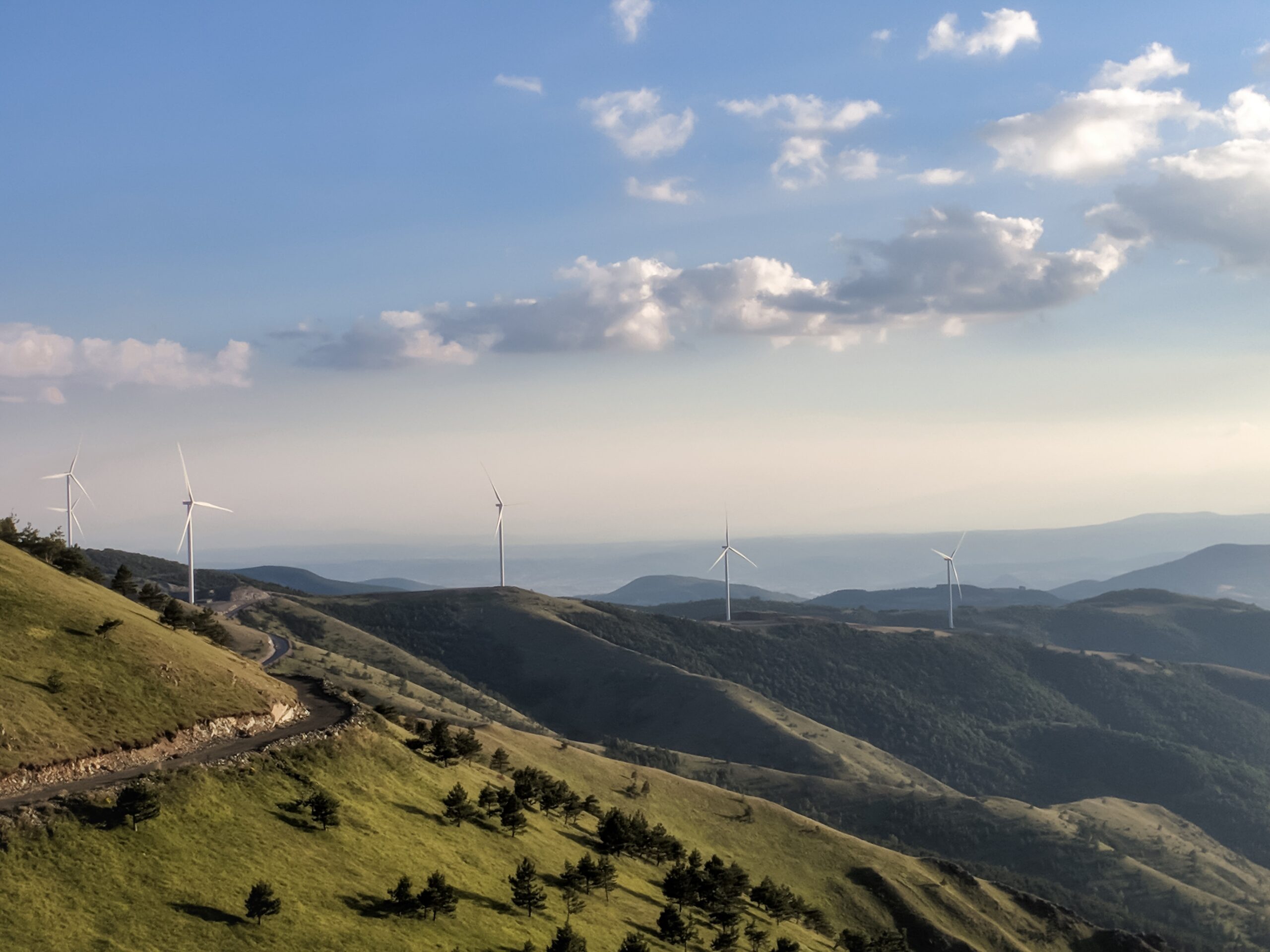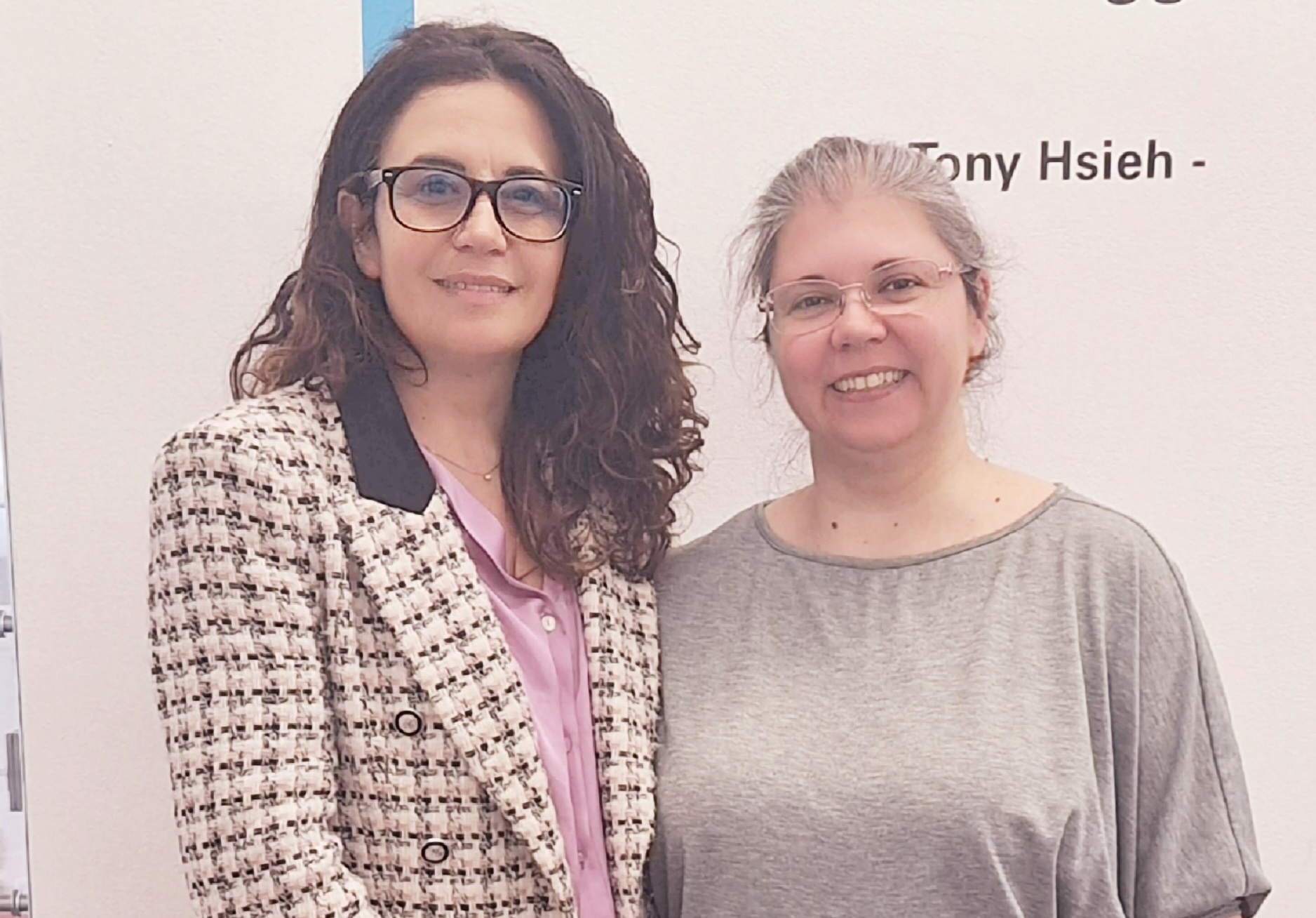The sister projects WENDY, WIMBY, and JustWind4All are doing a joint webinar on holistic impact assessment for wind energy
Copenhagen Business School (CBS) is a globally recognised business school with a broad focus and deep roots in the Nordic socio-economic model.
CBS is dedicated to producing high-quality disciplinary and interdisciplinary research and education that address societal challenges, and is actively involved in research and projects related to wind energy through various initiatives.
The WENDY project is placed under the CBS Sustainability Center, Department of Management, Society and Communication (MSC). The Center for Sustainability is multi-disciplinary research hub focused on sustainable practices and developments in organisations, markets and society at large. Its research profile includes topics like sustainable business models, responsible management, and the integration of sustainability into corporate strategies.
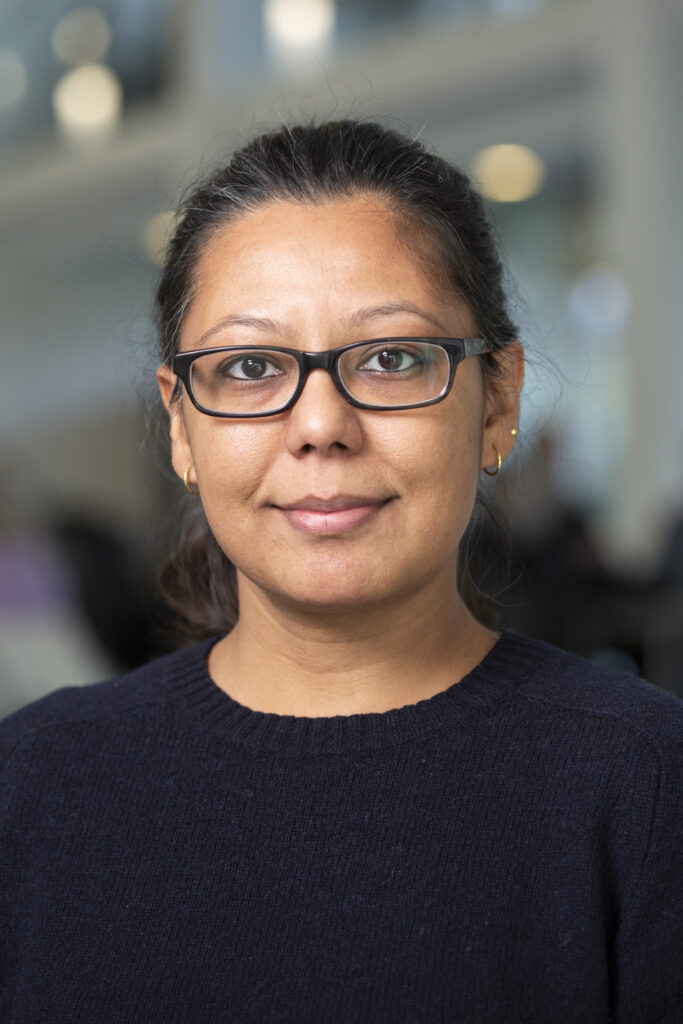
The CBS project team working on WENDY includes Associate Professor Efthymios Altsitsiadis (PI) and Postdoc Roopali Bhatnagar. This research team brings extensive research expertise in the social science and humanities domain, especially behavioral decision making and social acceptance of renewable energy. Roopali largely manages the project tasks incl., design, implementation of surveys, data analysis, preparation of deliverable reports and academic publications, while Efthymios provides overall direction and guidance. Working at the CBS Sustainability Center, enables the team to benefit from the expertise of other CBS researchers and learn from a multitude of existing sustainability projects.
“We strongly believe that the comprehensive solutions developed under the WENDY project will positively influence attitudes towards wind energy, not just in the use case areas, but globally,” says Roopali Bhatnagar.
Lucía Paloma Castillo and Irma Villar
The Greek energy community, Minoan Energy Community (MEC), was established to empower the energy transition in Crete and democratise energy generation using renewable energy resources (RES). It is the largest energy community in Greece with over 850 members (March 2024), primarily residing on the island of Crete.
Minoan Energy Community plays a crucial role in the WENDY project. Through its extensive membership base, activities and collaboration with other energy communities, MEC facilitates effective communication with the Greek social fabric for one of the pilot areas. The project explores factors influencing public opinion on wind energy, focusing on energy citizenship, environmental design and energy landscapes.
Participation in MEC projects is voluntary, allowing any of the (over 1000) members to contribute. A technical-scientific team of 30 members, comprised of members of the community who are experts in various fields including industry, academia, and consulting. The local government oversees the activities. Six individuals are actively involved in the WENDY project: Irini Dakanaki, Chrysoula Iakovopoulou, George Doriakis, Dimitris Katsaprakakis, Nikolaos Papadakis, and Ioannis Samonakis.
While specific roles aren’t assigned, Irini, Chrysoula, and Nikolaos typically manage the organisation and execution of questionnaires, workshops, interviews, and report preparation. John Samonakis maintains the MEC website and supports communication and dissemination efforts. Dimitris, a founding member and a leading figure in MEC’s Technical Committee, boasts extensive academic expertise in RES and grid integration, offering valuable guidance to the team.
“WENDY empowers local communities and stakeholders in Greece to participate in developing and maintaining wind farms, promoting environmental harmony and public acceptance. Recognising the project’s focus on fostering social acceptance of wind turbines, MEC actively participates in the WENDY project,” said the President of MEC, Lambis Giannopoulos.
This commitment addressing key issues and seeks impactful solutions. In Greece, onshore wind has faced resistance due to perceived overexploitation by commercial companies with limited community integration. MEC believes that democratising energy generation is essential for public acceptance of wind energy initiatives. They view WENDY as a valuable resource for promoting sustainable integration of offshore wind energy into Greece’s energy landscape, providing insights beneficial local and national legislative bodies.
Author: Nikolaos Papadakis, MEC
Edit: Martine Farstad
Our partner Norwegian Offshore Wind is a Norwegian industry cluster with members from the offshore wind industry. Its goal is to establish world leading supply chains within floating offshore wind. With close to 400 members ranging from agile start-ups to large offshore wind developers, it is the biggest industry network in Norway.
Norwegian Offshore Wind is a key participant in the WENDY project and has responsibility for one of the pilot areas in addition to communication and dissemination of the project. The project is investigating the factors influencing public opinions concerning wind energy, with a specific emphasis on energy citizenship, environmental design, and energy landscapes. While WENDY focuses on both onshore and offshore wind, Norwegian Offshore Wind exclusively concentrates on the offshore component of the project.
The cluster has 14 employees, two of them which are working on the WENDY project, Martine Elise Farstad and Christopher Harman. Martine is the communication and dissemination manager for the Wendy project and is responsible for WENDY’s social media, website, and newsletter. Chris is the Innovation Manager for the cluster and has a background from the institute sector looking at effects of industrial activities. He supports the work being done in the WENDY projects on topics like turbines’ social acceptance and wind energy citizenship. He is also involved in the work related to the Norwegian pilot area together with Martine.
-WENDY provides a unique platform to explore the complexities of integrating offshore wind into our energy landscape, ensuring harmony with the environment, and public acceptance, says Christopher Harman, Innovation Manager in Norwegian Offshore Wind.
Norwegian Offshore Wind is decided to participate in the WENDY project, recognising the critical importance of the project’s focus. The decision to join stems from a commitment to addressing key issues and aspiring to generate effective solutions. In Norway, onshore wind has encountered resistance as a renewable energy source, necessitating the exploration of strategies that enable offshore wind to harmoniously coexist with other industries utilising the same ocean space. Central to this is to safeguard the environment and foster public acceptance of offshore wind initiatives. Norwegian Offshore Wind looks to WENDY as a platform that will offer valuable insights and approaches, shedding light on how to navigate these challenges and promote the sustainable integration of offshore wind energy into Norway’s energy landscape. This information can become valuable information for the members of Norwegian Offshore Wind and possibly also governmental bodies in Norway.
The WENDY project, an EU funded project dedicated to understanding the triggers of social acceptance for wind energy, achieved significant praise as it reached its halfway point during its first review meeting in Brussels last week.
Bringing together the project partners and representatives from the EU granting authority, the meeting served as a pivotal moment to assess progress, address challenges, and plan for the project’s successful completion. Participants engaged in productive discussions, culminating in very positive feedback from the project officer, underscoring the consortium’s dedication and progress.
–I’m pleased with our project’s progress! Each partner’s commitment to task delivery is evident, and it’s reflected in our achievements. The project officer’s satisfaction is motivating, encouraging us to continue our efforts. We’re focused on maintaining this momentum and delivering meaningful outcomes as we move forward, said WENDY project manager, Jonatan Peris Rivas from CIRCE.
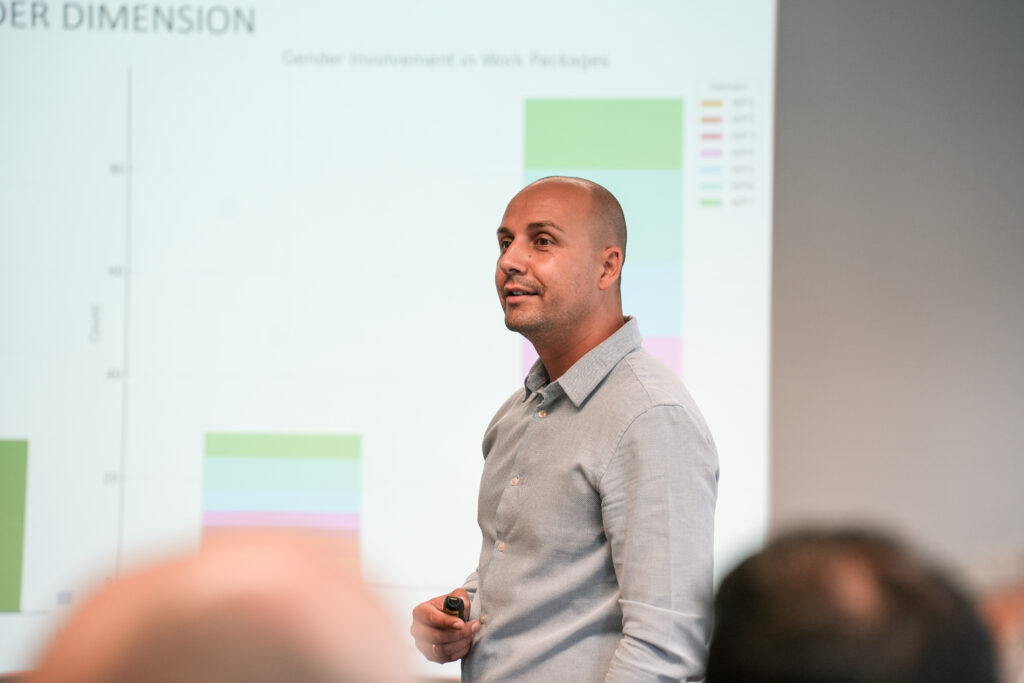
As the project enters its next phase, expectations are high for continued momentum and the delivery of impactful results. With the successful completion of this review meeting, attention turns to the forthcoming period, where we anticipate further advancements and valuable insights.
A collection of shared expertise from three Horizon Europe projects – WENDY, JustWind4All and WIMBY
The Directives on the promotion of the use of energy from renewable sources (Directive 2009/28/CE, Directive (EU) 2018/2001, Directive (EU) 2023/2413) are a key element in the development of renewable energies in the European Union. They serve as a fundamental framework to guide Member States in the implementation of renewable energy policies and practices. These directives lay the foundation for promoting the use of renewable energies by guiding Member States in implementing renewable energy policies and practices in their respective territories. They also highlight the importance of public participation and social acceptance in the sector.
However, despite the progress made, challenges remain, particularly concerning around public participation. Efforts are still needed to ensure effective and meaningful participation of local communities and stakeholders at all stages of the process. Barriers faced by wind projects need to be addressed, such as simplifying administrative procedures, and improving transparency and communication. Additionally, there is a need to challenge existing preconceived ideas, encourage collaboration, and provide more opportunities for stakeholder involvement. These actions will help increase public and social support for wind energy projects and ensure their acceptability in society.

Member States are implementing the European guidelines on environmental impact assessment, energy and climate targets for 2030, spatial planning, administrative efficiency, and public consultation, among other areas. However, there are differences in how these guidelines are adapted to the specific characteristics and needs of each country. Despite these variations, there is a shared commitment among Member States to boost the development of onshore wind energy.
Additionally, the EU has taken significant legislative steps to facilitate the development of offshore renewable energy sources, providing guidance to Member States in this regard. The EU strategy on offshore renewable energy targets an installed capacity of at least 60 GW of offshore wind and 1 GW of ocean energy by 2030. Initiatives such as the ‘Clean Energy for All Europeans’ package aim to foster public participation and social acceptance, although specific rules on community development in wind projects are lacking. However, concepts such as Renewable Energy Communities (RECs) and Citizen Energy Communities (CECs) are integrated into the regulatory frameworks of all Member States to encourage consumer participation in the clean energy transition.
On balance, although implementation strategies vary from one Member State to another, there is a collective commitment to progress towards the EU’s energy and climate objectives. This is particularly evident in the development of onshore and offshore renewable energy and the promotion of public participation in the transition.
Preliminary regulatory aspects relevant to key stakeholders
Concerning administrative procedures, transparency, and stakeholder involvement, not all European countries are on the same page, and the rate of adoption can vary significantly, even among neighbouring regions. This largely depends on the local context and institutional support and capacity to address information and authorisation needs.
In recent months, the WIMBY project conducted several interviews to explore the needs, expectations, and concerns from diverse stakeholders across Europe. Participants included farmers, primary and high school teachers, environmental impacts experts and engineers, DSOs representatives, and local institution representatives. The findings revealed that the main difficulty is the poor access to up-to-date, comprehensible, and comprehensive information related to existing wind farms and their actual impacts, both positive and negative. Access to ongoing and planned projects is also limited to highly technical content (such as VAS documentation), which is often difficult to read for both for experts and non-experts who seek more “digestible” summaries. Another issue highlighted by most participants is the difficulty in quickly navigating the national, regional, and specific regulations and incentives applicable to a specific area. To unlock bottom-up initiatives, information related to soft and hard constraints should be publicly available, and immediate comparison should be enabled.
The three sister projects – JustWind4All, WIMBY and WENDY – are working hard to bridge this information gap and facilitate informed discussions and decision-making. By using powerful tools such as web-GIS systems, 3D simulation environments, and discussion forums, these projects aim to provide easy access to all target stakeholders. They hope to create opportunities of mutual learning and trust across institutions, developers, and civil society, while keeping transitional and procedural justice at the core of all decisions.
Accelerating Wind Power Development: The Accele-RES Initiative and Its Role in Meeting EU Climate Targets
The European Union now finds itself at a critical juncture in the race against climate change. The ambitious targets set for 2030 and 2050 demand swift and effective energy actions, including wind power development. With barriers such as technical complexities, social resistance, and environmental concerns, the EU and its Member States cannot afford further delays and lessons must be learned from past failures.
JustWind4All and WIMBY will tackle these challenges in a European Sustainable Week (EUSEW) session titled “The answer is in the wind: the Accele-Res initiative for a holistic approach to wind power”. To create a streamlined path for wind energy projects, the Accele-RES Initiative introduces Renewables Acceleration Areas (RAAs). However, the effectiveness of RAAs relies heavily on their design and the level of collaboration among stakeholders. Member States must embrace a comprehensive planning approach, considering technical, environmental, and social factors, and actively involve citizens in RAA implementation. Additionally, ecosystem-based spatial planning is crucial for mitigating environmental impacts and advancing the EU’s climate objectives.
By bringing together diverse stakeholders, including the wind industry, NGOs, policymakers, and researchers, the session will offer a platform to explore the complexities associated with Accele-RES implementation. A panel discussion with five speakers will focus on the challenges and opportunities for Member States to designate and implement Accele-RES for onshore and offshore wind energy in a holistic manner, ensuring benefits for communities and nature.
Key insights and future directions for wind power development in the EU
As the European Union advances towards its energy and climate objectives, the need for swift and effective action in wind power development becomes increasingly evident. Initiatives like the Accele-RES Initiative offer promising pathways, yet their success hinges on robust collaboration and comprehensive planning, integrating technical, environmental, and social dimensions. The upcoming EUSEW session will serve as a platform for stakeholders to delve into these complexities by fostering dialogue among diverse stakeholders. The aim is to address the challenges and opportunities associated with Accele-RES implementation for both onshore and offshore wind energy.
Disparities in administrative procedures, transparency, and stakeholder involvement persist among European countries, influenced by local contexts and institutional capacity. The recent findings of the WIMBY project underscore the need for accessible, comprehensive information and streamlined regulatory frameworks to unlock bottom-up initiatives and foster informed decision-making.
In conclusion, fostering dialogue and ensuring the accessibility of information to all stakeholders are paramount for the success of any project, especially the ones dealing with social acceptance. Involving every party in the various stages of development not only promotes transparency but also facilitates a clear understanding of the process. When information is readily available, it enhances acceptance and trust among stakeholders. The innovative tools being developed by the WIMBY, WENDY, and JustWind4All projects, such as web-GIS systems and 3D simulation environments, are designed to make this possible. These smart and user-friendly solutions ensure that even those with less technical knowledge can grasp the intricacies of the project, thereby fostering a more inclusive and collaborative environment.
A collection of shared expertise from three Horizon Europe projects – WENDY, JustWind4All and WIMBY
As WIMBY, JustWind4All, and WENDY are collectively working on a transformative journey towards sustainable wind energy adoption, we invite you to become an integral part of this movement. Stay connected with us on social media platforms, where we share the latest updates, insights, and impactful stories. Subscribe to our newsletters for in-depth information, behind-the-scenes glimpses, and exclusive content.
By following our projects, you actively contribute to the discourse around wind energy acceptance, enabling a future powered by clean, renewable sources. Together, we can break down barriers and foster understanding.
Keep an eye out for upcoming activities— workshops, events, surveys —where your participation can make the difference.
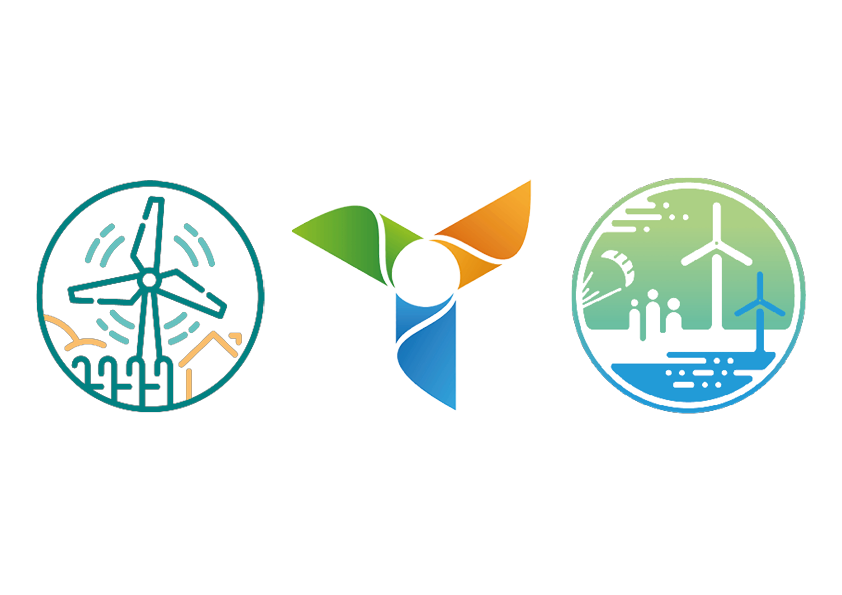
In synergistic collaboration, this article has been made possible through the active participation of three EU-funded projects: WENDY-101084137, WIMBY-101083460, JUSTWIND4ALL-101083936.
Enel Green Power (EGP) is a key partner of Wendy project and plays a role in environmental and technological impact assessment of wind energy and is in charge of two of the pilot areas in Italy and in Spain.
Enel Green Power is the Enel Group company dedicated to the development and operation of renewable energy plants. The Rome-based company has over 1,300 plants around the world: in Europe, the Americas, Africa, Asia and Oceania. World leader in clean energy, with a total capacity of approximately 63 GW and a generation mix that includes wind, solar, geothermal and hydroelectric, as well as storage plants. Thanks to technological innovation and internationally recognized operational excellence, Enel Green Power also works on repowering, i.e. the repowering of existing renewable plants, to increase their efficiency and reduce generation costs. On the environmental sustainability front, the company’s development strategy aims to close all remaining coal plants by 2027, subject to authorization from the competent authorities. But not only that, the long-term ambition is even greater: 100% renewable production and zero emissions by 2040.
The team Environment and Impacts Mitigation at Innovation of EGP to foster the renewable energy sustainability and the stakeholder engagement.
In the WENDY project, a group of five people are involved, focusing on improvement of environmental sustainability and the social acceptability enhancing of wind energy. Key people include:
Miriam Di Blasi, head of Environment and Impacts Mitigation at Innovation of EGP, and Silvia Masci, senior project manager, lead the initiative project to validate tools and technological solutions able to monitor, detect and preserve birds and bats species, taking into account habitat management actions, adopting the best practices available and designing innovative environmental solutions.
Maria Genovese and Giulia Pasquale, experts in biodiversity and circular economy, support in activities carried out related to social acceptance of turbines and citizenship of wind energy.
Roberto Andres Vallejo, senior innovation specialist, as focal point for the activities related to the Spanish use case.
Wendy project a key initiative to foster the wind energy growth.
The Wendy project offers the opportunity to cooperate in the wind energy sector, at EU level, with the best experts, coming from universities, utilities, energy communities, environmental consultants, and Renewable Energy Associations.
In details, Wendy aims at engaging wind energy key stakeholders in order to raise their awareness, identifying with them local needs and objectives for socially inclusive and sustainable wind farms development. The implementation of the roadmaps with details of the local vision and objectives will allow to identify the sequence of steps required for either enhancing participation in- and improving co-existence settings around turbines or planning new wind farm projects by employing participatory process from the starting point.
Another important target of Wendy’s in which EGP is very interested is the development of integrated modeling tools and validated methodologies to assess the effects of wind farms on the local natural environment and tools to Identify the optimal location for turbine siting through a Holistic Impact Assessment.
Within the WENDY project, EGP is also involved in investigating the environmental impacts of wind turbines, in the scouting of new technologies to mitigate these impacts and in the tests on-field to validate their effectiveness.
Authors: Silvia Masci and Miriam Di Blasi
Through research and spatial analysis, NINA aims to establish the groundwork for a future where wind energy development is integrated with environmental conservation efforts.
The Norwegian Institute for Nature Research (NINA) is an independent research foundation with headquarters in Trondheim and departments in Oslo, Bergen, Tromsø, and Lillehammer. More than 350 employees work on nature-based solutions for a more sustainable future. The institute conducts research on nature and nature-society interactions and has a wide range of expertise within ecology, geography, and social sciences. In the WENDY project, the NINA team contributes with its interdisciplinary knowledge to model impacts from wind energy on biodiversity and environmental values.
“The WENDY project takes a holistic approach to wind energy, making it exciting to be part of this inter- and transdisciplinary consortium. Considering the large areas required for wind farms, we consider it vital that research develops methods that can be used in an early phase to evaluate impacts and inform decision makers,” says Roel May, senior research scientist at NINA.
The Team for Sustainable Wind Energy
In the WENDY project, a group of four individuals are involved. Roel May is a senior research scientist at NINA and work package leader in the WENDY project. He is actively involved in modelling of wind energy impacts on biodiversity and ecosystem services. Additionally, Roel coordinates the work to assess the impact of the WENDY method on energy stewardship.
Another Researcher, Thomas Kvalnes, maps marine and terrestrial biodiversity, based on species occurrence data. Based on these maps he develops models to calculate the impact of offshore and onshore wind energy on biodiversity. Complementing their efforts is Frank Hanssen, a Senior Engineer responsible for the development of the spatial multi-criteria WENDY toolbox for consensus-based siting of wind energy infrastructure. Lastly, we meet Reto Spielhofer, the researcher developing a participatory tool to map ecosystem services, known as the utilitarian values of landscapes. The ecosystem service maps are then used to calculate the impact of wind energy on peoples’ perceived landscape values.
NINA to use WENDY Methods in Future Research
The NINA team working in the WENDY project is trained to think and work spatially. Thus, their methods result in maps and spatially explicit models, which foster the development of solutions for evaluating the impacts of wind farms during the planning phase. Spatially explicit assessments, processes, and solutions are key to foster energy stewardship and ultimately enhance acceptance for wind energy.
“The WENDY project furthers our portfolio on the interface of renewable energy with nature conservation internationally. Applying holistic and interdisciplinary approaches to tackle real-life challenges is also at the core of our applied profile,” says Roel May.
The methods, developed in the WENDY project and the gained knowledge will be used in other NINA relevant research projects and is aimed for use by decision makers. The mapping of biodiversity and ecosystem services will also be transferable to other important topics.
Authors: Roel May, Thomas Kvalnes, and Frank Hanssen.
ed. M. Farstad
Specialising in market research, White Research is an important project partner and a driving force behind the WENDY project.
White Research is a research and consultancy firm serving a diverse of clientele from the public sector, private industry, academia, and civil society organisations. Based in Brussels and with a satellite office in Thessaloniki, White Research has a solid portfolio of 27 EU-funded projects under Horizon 2020 and Horizon Europe. With extensive experience in the field, White Research possesses a wealth of research expertise and a maintains a vast network of 318 partners across Europe. Specialising in market research, White Research is working with the WENDY project to promote the uptake of wind farms.
Supporting pilot cases and local initiatives
With the dedicated team of Michail Ntovas and Anastasios Tsakas, White Research is strongly committed to the success of the WENDY project. Michail Ntovas leads White Research’s involvement in WENDY as Senior Project Manager, while Anastasios Tsakas provides critical day-to-day support as Associate Project Manager. Together they work closely with the WENDY pilot cases and champion initiatives to promote social acceptance and public participation in wind farm projects at both the pilot and EU levels.
“WENDY is a cornerstone in promoting wind energy through a comprehensive approach that fits seamlessly into the EU’s clean energy transition strategy,” says Michail Ntovas, Senior Project Manager at White Research. “Our collaboration with WENDY underscores our commitment to advancing clean energy solutions across Europe,” he continues.
Expertise in Social Sciences and Humanities
White Research’s expertise in the social sciences and humanities is crucial to driving the project forward. Through insightful research, White Research has shed light on the factors influencing the uptake of wind energy and identified key motivators and barriers through interviews with industry stakeholders and crowdsourcing surveys. At the heart of White Research’s involvement with WENDY is an unwavering commitment to realising a sustainable energy future for generations to come.
Envisioning Change in the Energy Sector
The WENDY project holds great promise for both our organisation, White Research, and the broader community. “We expect a significant expansion of our research capabilities and networking opportunities, which will further cement our position as a leading consultancy in the European landscape”, says Ntovas. In addition, the project provides a platform to showcase their expertise in the social sciences and humanities, particularly in promoting social acceptance and public participation in wind energy projects. Beyond their organisation, they envision that the WENDY project will bring about change in the energy sector and promote awareness and acceptance of wind energy solutions. “Ultimately, we want WENDY to make an important contribution to the transition to clean energy in the EU and pave the way for a sustainable and greener future,” Ntovas concludes.
Read more about White Research here.
Authors: Michail Ntovas and Anastasios Tsakas.
ed. M. Farstad

